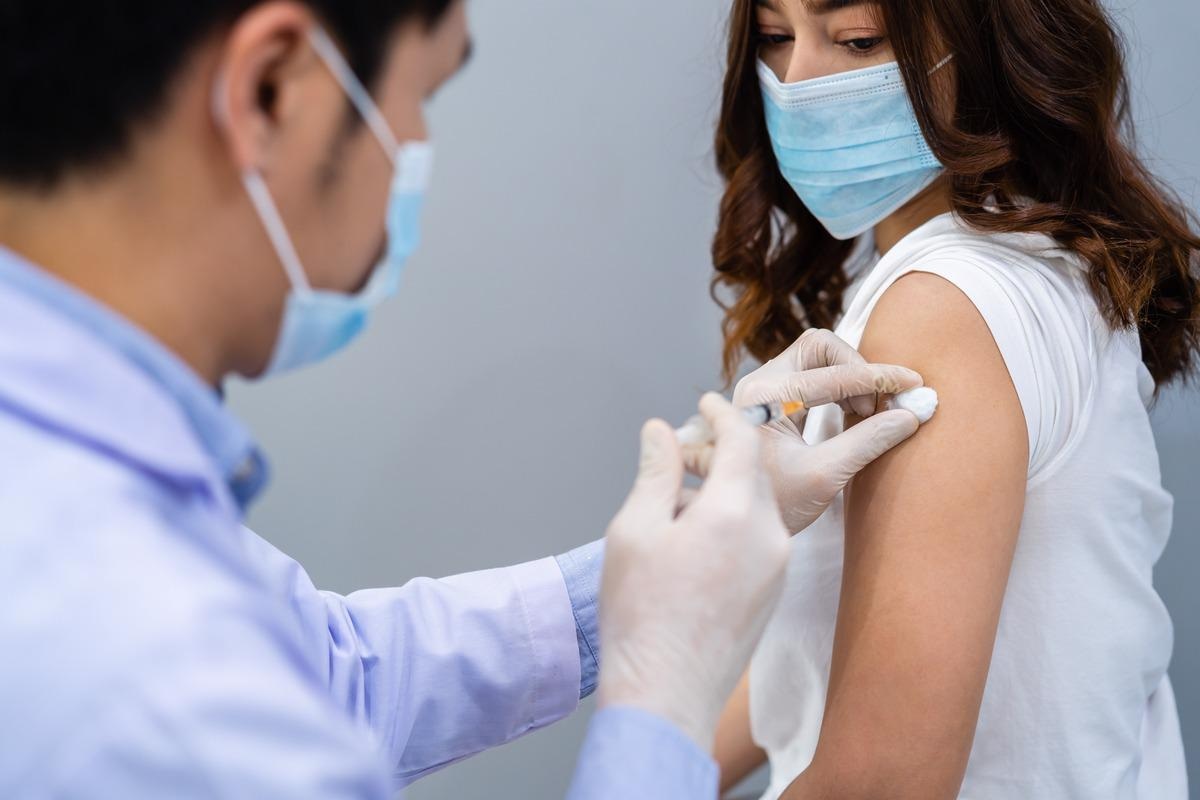Several vaccines against severe acute respiratory syndrome coronavirus 2 (SARS-CoV-2) have been developed to combat the ongoing coronavirus disease 2019 (COVID-19) pandemic.
Out of them, the two most commonly administered ones were the Pfizer-BioNTech (BNT162b2) and the (mRNA-1273) vaccine. The BNT162b2 vaccine received Emergency Use Authorization (EUA) by the US Food and Drug Administration (FDA) on December 11, 2020, while the mRNA-1273 received EUA on December 18, 2020.
 Study: Comparison of Moderna Versus Pfizer-Biontech COVID-19 Vaccine Outcomes: A Target Trial Emulation Study In the U.S. Veterans Affairs Healthcare System. Image Credit: BaLL LunLa/Shutterstock
Study: Comparison of Moderna Versus Pfizer-Biontech COVID-19 Vaccine Outcomes: A Target Trial Emulation Study In the U.S. Veterans Affairs Healthcare System. Image Credit: BaLL LunLa/Shutterstock
Although the efficacy of each vaccine against SARS-CoV-2 infection, hospitalization, and death has been reported in several studies, it is still unclear whether one vaccine is superior to the other, especially against the Delta variant of SARS-CoV-2. Both the vaccines comprise full-length spike-protein encoding mRNAs but difference regarding doses of mRNA content, the interval between doses, and composition of the lipid nanoparticle vehicles exists between them.
The Veterans Affairs (VA) healthcare system which is one of the largest national comprehensive healthcare systems in the U.S has administered large proportions of both the vaccines to its enrolees. However, a randomized trial comparing the two vaccines is unlikely to be performed.
A new study published in The Lancet used target trial emulation design for comparison of both the vaccines in the VA healthcare system against the risk of infection, hospitalization, and death.
About the study
The study involved data collection from the VA’s Corporate Data Warehouse (CDW) and the VA Information Resource Center (VIReC). Participants for the study were recruited from December 11, 2020, to March 25, 2021, with time from vaccination to SARS-CoV-2 infection, hospitalization, and death being the primary endpoints.
The participants included in the study were 18 years of age or older as of December 11, 2020, and had an inpatient or outpatient encounter in the VA health care system 12 months preceding the vaccination. Thereafter, participants who have received at least one dose of BNT162b2 or mRNA-1273 between December 11, 2020, and March 25, 2021, were identified. Participants who did not have an outpatient or inpatient encounter in the VA healthcare system, who were living in VA long-term care facilities, and had SARS-CoV-2 infection before vaccination were excluded from the study.
The eligible participants were stratified based on four characteristics that include age, calendar week of vaccination, VA Integrated Service Network, self-reported race and ethnicity, sex, body mass index, the Care Assessment Need (CAN) score, and Charlson Comorbidity Index (CCI). The stratification strategy was then used to match mRNA-1273 to BNT162b2 recipients by the mentioned characteristics.
A follow-up of 5 to 8.5 months was carried out for all eligible vaccine recipients. Data on recipients who tested positive for SARS-CoV-2, data on hospitalization within 30 days of COVID-19 diagnosis, and data on deaths within 30 days of COVID-19 diagnosis were also collected.
Findings
The result indicated that the comparison of data for recipients vaccinated with BNT162b2 and mRNA-1273 was found to balance before matching. 902,235 unique persons who received the BNT162b2 vaccine were matched with 656,736 unique mRNA-1273 recipients. Matching with replacement led to the matching of approximately 96% of the BNT162b2 to approximately 56% of the mRNA-1273 recipients.
Both the recipient groups were predominantly male with diverse ethnic backgrounds, substantial comorbidity burden, similar CAN score, and a mean age of about 67.5 years. The second dose was also administered to a very similar proportion of vaccine recipients.
The results also reported that during the follow-up period the mRNA-1273 recipients had an approximately 26% lower risk of SARS-CoV-2 infections as compared to the BNT162b2 recipients. Both SARS-CoV- 2 related hospitalizations and deaths were found to be lower in the mRNA-1273 recipients as compared to the BNT162b2 recipients. However, the difference between the two groups of recipients increased as the follow-up period became longer. Additionally, lower risk differences and risk ratios calculated at 24 weeks after vaccination was found to be associated with the mRNA-1273 group compared to the BNT162b2 group for SARS-CoV-2 infection, hospitalization, and deaths.
The current study, therefore, suggests that concerning SARS-CoV-2 infection, hospitalization and death, the mRNA-1273 vaccine showed higher efficacy compared to the BNT162b2 vaccine. However, the safety and comparative effectiveness of both vaccines will continue to be studied since they can influence important decisions made by governments, healthcare systems, and individuals regarding the choice of the vaccine.
Limitations
The study had certain limitations. First, the study could not completely exclude residual confounding. Second, several additional infections and hospitalizations occurred that were not included in the study. Third, certain deaths and hospitalizations following SARS-CoV-2 infection may not be linked to the infection. Fourth, the study population consisted mostly of males so the results may not be generalizable for females. Finally, the the study considered only the period of Delta dominance that could introduce bias.